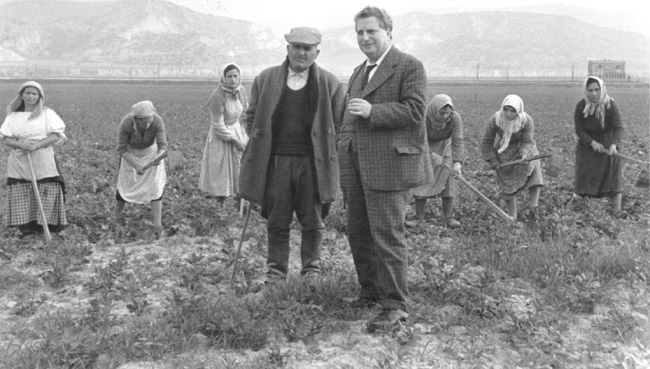When New York City Mayor Bill de Blasio visits Grassano, the birthplace of his grandmother Anna Briganti, he’ll be walking in the footsteps of not only his forebears but also an Italian author whose first book was a cornerstone of one of New York’s best-known publishing houses. The coincidence is more than a geographic one: the reforming mayor will be returning to a family hometown, but also to a place that led to a masterpiece of social reporting and reformist philosophy.
Carlo Levi’s book, Christ Stopped at Eboli (Cristo si è fermato a Eboli), published in 1945, was one of Roger Straus’s first acquisitions: it was “a harbinger of things to come,” according to Hothouse, a history of the publishing house FSG, “a critical triumph and best-seller in 1947.”
The book was written by Levi, a Turin-born Jewish doctor and painter, who recounts a year of his internal exile in Grassano and a neighboring village, Aliano (called Gagliano in the book), for anti-Fascist activism.

